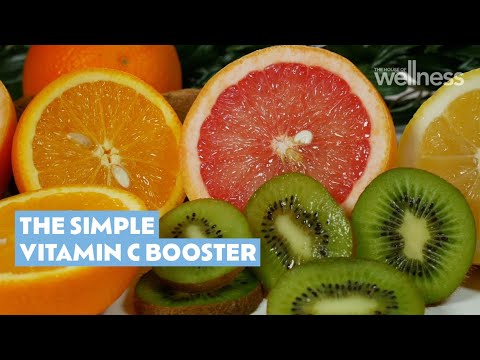Vitamin D Hormone and Health
As we’re spending more time in our homes, a daily dose of Vitamin D has never been more important to help you and your family stay well. Vitamin D is a hormone the kidneys produce that controls blood calcium concentration and impacts the immune system. Understanding this hormone and the role it plays in the body will help you make informed health decisions.
Why Vitamin D is a hormone? And what is it’s main function in the body?
Vitamin D is essentially associated with calcium regulation and immune modulation. Because of its effect on calcium absorption regulating mineral metabolism, it is often referred to as a hormone.
Physiologically, vitamin D facilitates intestinal absorption of calcium and also stimulates absorption of phosphate and magnesium ions. In the absence of vitamin D, efficiency of dietary calcium absorption is low.
Our bodies need vitamin D to extract calcium properly from the food we eat, but a vitamin D deficiency means we cannot absorb enough calcium. Over time, this can contribute to osteomalacia – a condition where the bones become weak and more likely to fracture. But upping your vitamin D levels helps remineralise bone structures. It strengthens bones and teeth, helps prevent rickets, arthritis and osteoporosis, and participates in growth and maturation processes necessary for strong immunity. Finnish researchers recently discovered that low vitamin D levels are linked to periodontitis, or gum disease.
Research shows that this vitamin improves the healing of wounds and participates in DNA synthesis. Vitamin D transmits nerve impulses and offsets the negative effects of the stress hormone cortisol on the central nervous system.
People who have thyroid problems have low levels of vitamin D, as well as those who have adrenal, liver, microbiome problems.
Good gut bacteria are able to produce this vitamin on their own, isn’t it amazing? Good intestinal bacteria must be fed with prebiotics and probiotics to function effectively.
Muscle weakness may be another side effect of low vitamin D levels, especially in the elderly. Numerous studies have found that taking supplements of this vitamin significantly improves muscle performance, in turn decreasing the number of injuries suffered from falls.
This vital vitamin could have benefits for both mind and body. Evidence shows there are links between low vitamin D levels and dementia. It can be found in brain tissue and two large studies recently suggested that low vitamin D levels could increase the risk of developing dementia. This means that sufficient consumption of vitamin D can boost your brain function.
Vitamin D offers an amazing range of health benefits, foremost of which is protection against seroto-nin depletion. Serotonin is a compound that helps regulate your body temperature (among many other things). This means Vitamin D can reduce hot flushes and alleviate night sweats. Also, Vitamin D se-cretes an enzyme that is responsible for deep sleep.
Serotonin is also crucial for improved moods and motivation. Studies have shown that low levels of vitamin D were linked to higher levels of depression and anxiety. This hormone is known to be a hormone of happiness and smile.
Is there a connection between COVID-19 and vitamin D?
There is evidence that low levels of vitamin D in the blood – can increase a person’s risk of becoming infected with a new coronavirus, the researchers say. It is well known that vitamin D plays an important role in maintaining a person’s immune health. In addition, it induces the expression of an antimicrobial peptide that can reduce viral replication and regulate the amount of pro-inflammatory / anti-inflammatory cytokines. Therefore, vitamin D supplements may reduce the frequency, severity, and risk of death from pneumonia caused by many viral infections, including COVID-19.
A study was conducted that in those countries where there was a high mortality from COVID-19 (Ita-ly, Spain), all elderly people had vitamin D deficiency in their blood.
Consult your doctor or pharmacist for vitamin dosing.
Natural sources of the vitamin D:
• Fatty Salmon,
• Herring,
• Eels,
• Fish Oil,
• Red Meat,
• Liver,
• Egg Yolk.
Plant based sources:
• Chaga mushroom
• Marigold rings,
• Milk rings
And the last, but not least source of the vitamin D is of course the Sun. 80% of vitamin D we can absorb through our eyes. Spend at least 10-15 min in the sun without sunglasses and you‘ll get your daily dose of this important hormone.
Press subscribe for more similar weekly content from Vitality Tips.
Follow us on Facebook:
and Instagram:
* All information provided on Vitality Tips are educational purposes only, seek your family doctor for professional advice on the matter.






